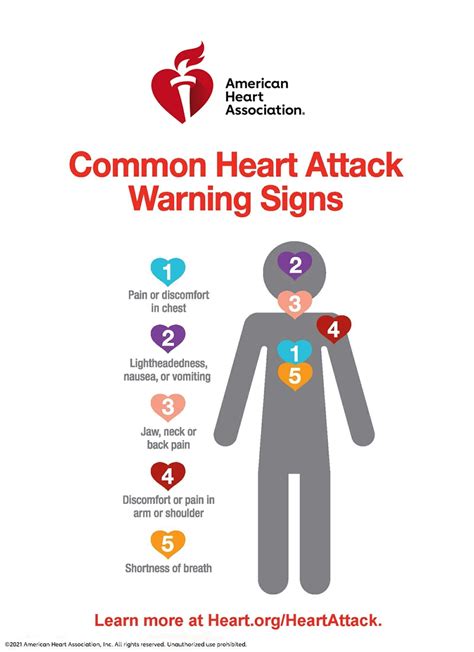Heart Health Alert: Recognize Risks Early

The importance of heart health cannot be overstated. As the leading cause of death globally, cardiovascular disease claims millions of lives each year, with many of these deaths being preventable with early recognition and management of risk factors. Thekey to mitigating this risk lies in understanding the various factors that contribute to heart disease and taking proactive steps to address them. This includes recognizing the signs and symptoms of heart disease, adopting a healthy lifestyle, and being aware of the latest advancements in cardiovascular care.
The Evolution of Heart Disease Understanding Historically, heart disease was viewed as a condition primarily affecting the elderly. However, recent studies have shown that the seeds of cardiovascular disease are often sown much earlier in life, with risk factors such as high blood pressure, diabetes, and high cholesterol increasingly being diagnosed in younger populations. This shift in understanding underscores the need for early intervention and prevention strategies that can be applied across the lifespan.
Risk Factors and Their Impact A multitude of risk factors contribute to the development of heart disease, including but not limited to:
- Hypertension: Often referred to as the “silent killer,” high blood pressure can lead to heart failure, coronary artery disease, and stroke if not properly managed.
- Hyperlipidemia: Elevated levels of cholesterol in the blood can lead to the buildup of plaques in arteries, reducing blood flow to the heart and increasing the risk of heart attacks.
- Diabetes Mellitus: Individuals with diabetes are at a significantly higher risk of developing heart disease due to the damaging effects of high blood sugar on blood vessels and nerves.
- Obesity: Being overweight or obese increases the risk of developing several risk factors for heart disease, including high blood pressure, high cholesterol, and diabetes.
- Smoking: Tobacco use is a major risk factor for heart disease, damaging the cardiovascular system and increasing the risk of heart attacks and strokes.
- Family History: A family history of heart disease can significantly increase an individual’s risk, highlighting the importance of genetic factors in the development of cardiovascular disease.
Early Recognition and Intervention The key to preventing heart disease is early recognition of risk factors followed by appropriate intervention. This can involve lifestyle changes such as adopting a healthy diet, engaging in regular physical activity, quitting smoking, and managing stress. For individuals with existing risk factors, medication may be prescribed to lower blood pressure or cholesterol levels.
Early intervention is critical in managing heart disease. Regular check-ups with your healthcare provider can help identify risk factors early, and adopting a heart-healthy lifestyle can significantly reduce the risk of developing cardiovascular disease.
Advancements in Cardiovascular Care The field of cardiology is rapidly evolving, with ongoing research and advancements providing new tools and treatments for heart disease. From minimally invasive surgical procedures to groundbreaking medications, the options for managing and preventing heart disease are expanding. Furthermore, the integration of artificial intelligence and machine learning into healthcare is improving the accuracy of diagnoses and the efficacy of treatments.
Practical Steps for a Healthier Heart Taking care of your heart is a proactive process that involves making informed choices about your lifestyle and health. Here are some practical steps you can take:
- Eat a Heart-Healthy Diet: Focus on consuming fruits, vegetables, whole grains, lean proteins, and healthy fats.
- Stay Physically Active: Aim for at least 150 minutes of moderate-intensity exercise or 75 minutes of vigorous-intensity exercise per week.
- Manage Stress: Engage in stress-reducing activities such as meditation, yoga, or deep breathing exercises.
- Get Enough Sleep: Aim for 7-8 hours of sleep per night to help your heart function properly.
- Stay Hydrated: Drink plenty of water throughout the day to help maintain healthy blood flow.
Benefits and Considerations of Lifestyle Changes
Making significant lifestyle changes can have numerous benefits for heart health, including reducing the risk of heart disease, improving overall health, and increasing lifespan. However, it's also important to consider the challenges and potential drawbacks of such changes, such as the time and effort required to adopt new habits, and the potential need for professional guidance or support.
The Future of Heart Health As our understanding of heart disease and its risk factors continues to evolve, so too will the strategies for prevention and treatment. Emerging trends in cardiovascular health include a greater emphasis on personalized medicine, where treatments are tailored to the individual’s unique genetic and environmental factors. Additionally, there is a growing focus on community-based interventions, recognizing that heart health is not just an individual issue, but one that is deeply connected to societal and environmental factors.
What are the most common signs of heart disease?
+The most common signs of heart disease include chest pain or discomfort, shortness of breath, pain or weakness in the arms or legs, and pain in the neck, jaw, throat, upper abdomen, or back. It's crucial to seek medical attention immediately if you or someone else is experiencing these symptoms.
Can heart disease be prevented?
+Yes, many cases of heart disease can be prevented by adopting a healthy lifestyle, including a balanced diet, regular physical activity, not smoking, and managing stress. Early recognition and management of risk factors such as high blood pressure, diabetes, and high cholesterol are also critical in preventing heart disease.
In conclusion, the challenge of heart disease is complex and multifaceted, requiring a comprehensive approach that includes early recognition of risk factors, adopting a heart-healthy lifestyle, and staying updated on the latest advancements in cardiovascular care. By taking proactive steps towards managing our health and being aware of the risk factors for heart disease, we can significantly reduce our risk and contribute to a healthier, happier life for ourselves and our communities.



